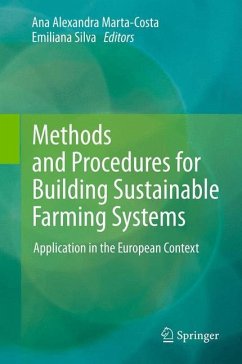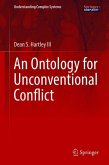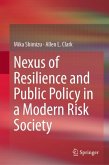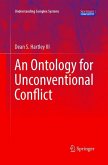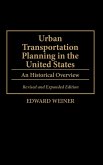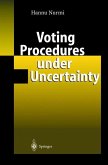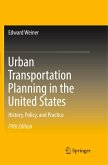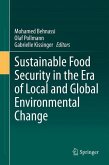Showing how the method of sustainability assessment plays a key role in choosing the best agricultural productive mode, this book guides the reader through the process of selecting, from among the various approaches for building farming systems, the method of decision-making that will result in the most appropriate outcome, given the context. Case studies hail from polities as diverse as Portugal and Canada, Argentina and Lebanon. The work thus offers a valuable critical survey of the assessment methods that account for sustainability and economics, and which have developed considerably in the last two decades. The heterogeneous approaches covered here make this volume appropriate for consultation in a wide variety of social, political and geographical contexts. This urgent publication surveys the latest research and methodologies combining efficiency in agricultural food production with sustainability in the same systems. Growing pressures on food production seem contrapuntal tothe ever-stronger imperatives of sustainability. How can agriculture balance successes in both productivity and ecology? Sustainability is a dynamic concept, seeking to achieve a balance in space and time of environmental, economic and social factors. Thus, farming systems are faced with contradictory demands for success: economic performance and social equity have to be maximized, while the environment and its natural resources need to be protected.
Showing how the method of sustainability assessment plays a key role in choosing the best agricultural productive mode, this book guides the reader through the process of selecting, from among the various approaches for building farming systems, the method of decision-making that will result in the most appropriate outcome, given the context. Case studies hail from polities as diverse as Portugal and Canada, Argentina and Lebanon. The work thus offers a valuable critical survey of the assessment methods that account for sustainability and economics, and which have developed considerably in the last two decades. The heterogeneous approaches covered here make this volume appropriate for consultation in a wide variety of social, political and geographical contexts.
Showing how the method of sustainability assessment plays a key role in choosing the best agricultural productive mode, this book guides the reader through the process of selecting, from among the various approaches for building farming systems, the method of decision-making that will result in the most appropriate outcome, given the context. Case studies hail from polities as diverse as Portugal and Canada, Argentina and Lebanon. The work thus offers a valuable critical survey of the assessment methods that account for sustainability and economics, and which have developed considerably in the last two decades. The heterogeneous approaches covered here make this volume appropriate for consultation in a wide variety of social, political and geographical contexts.

